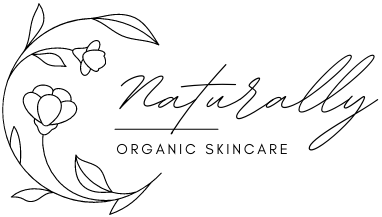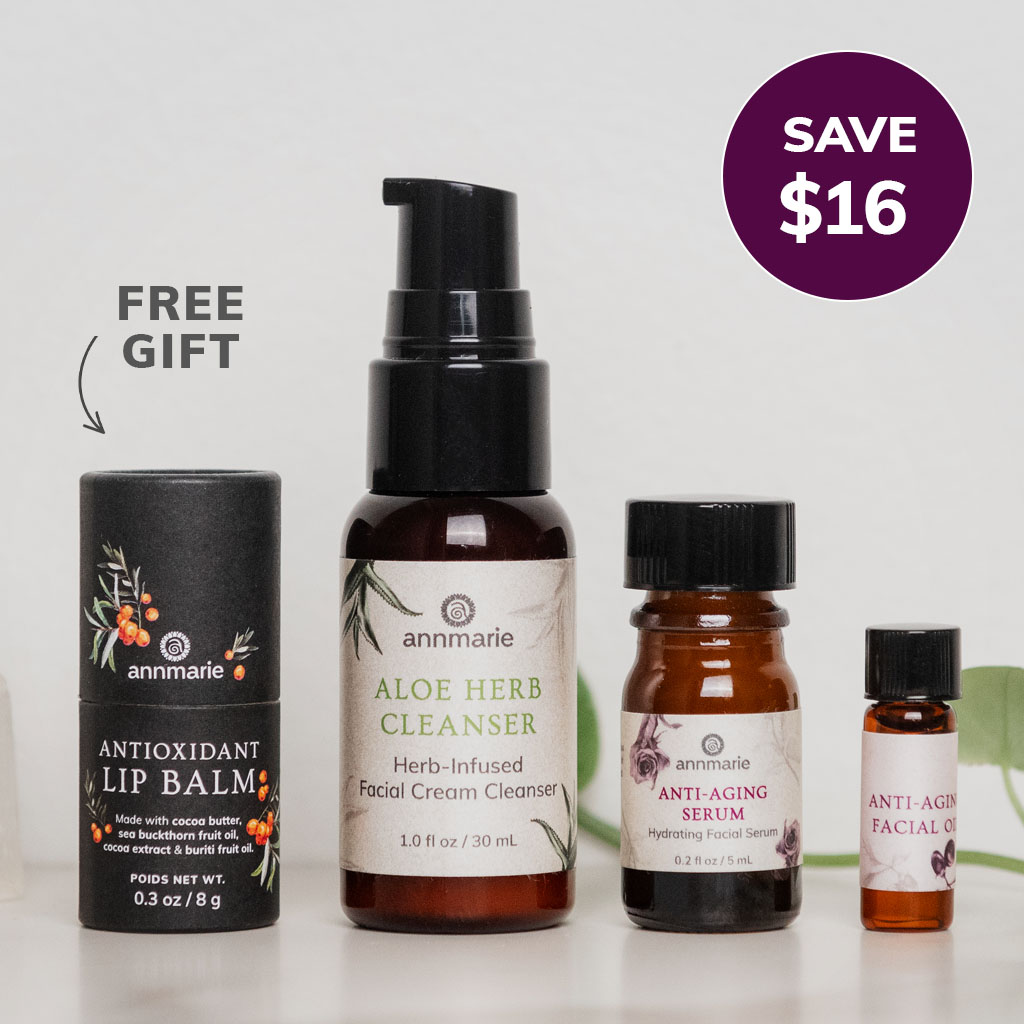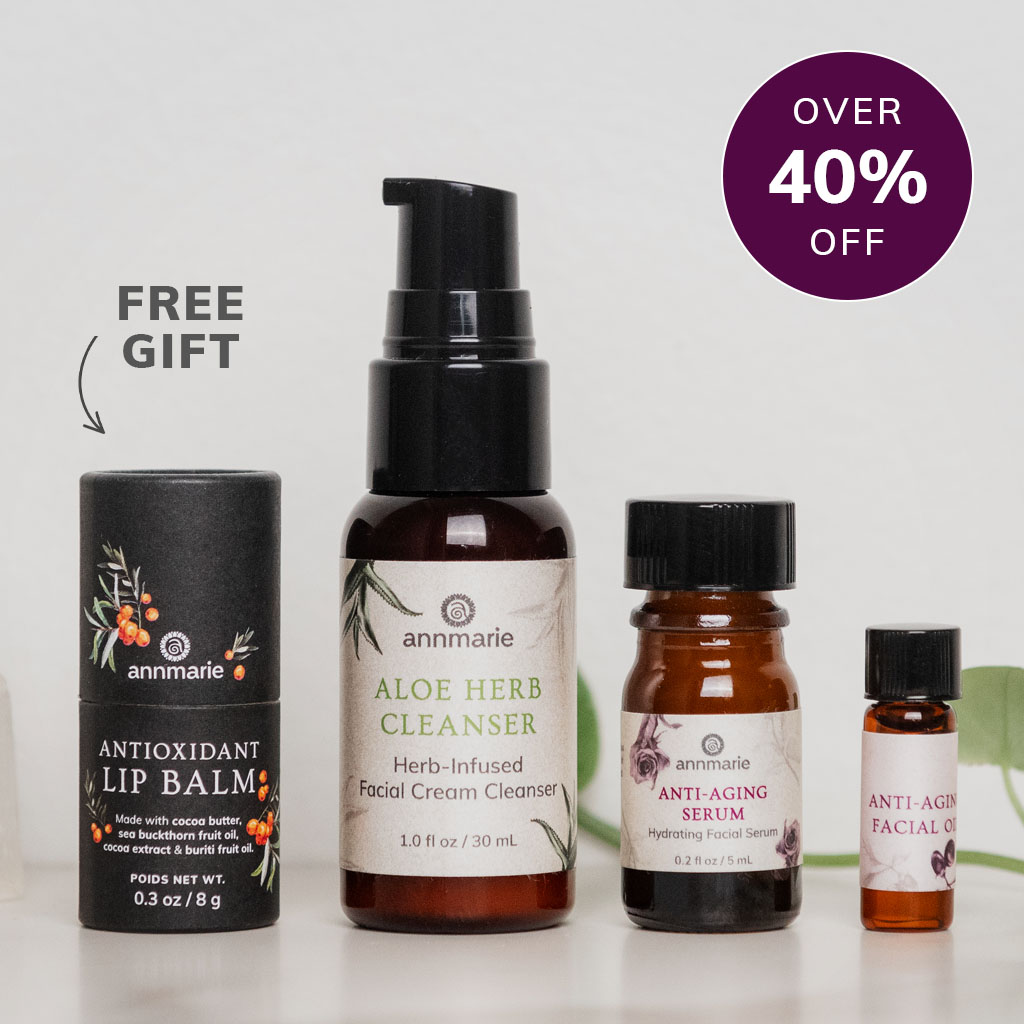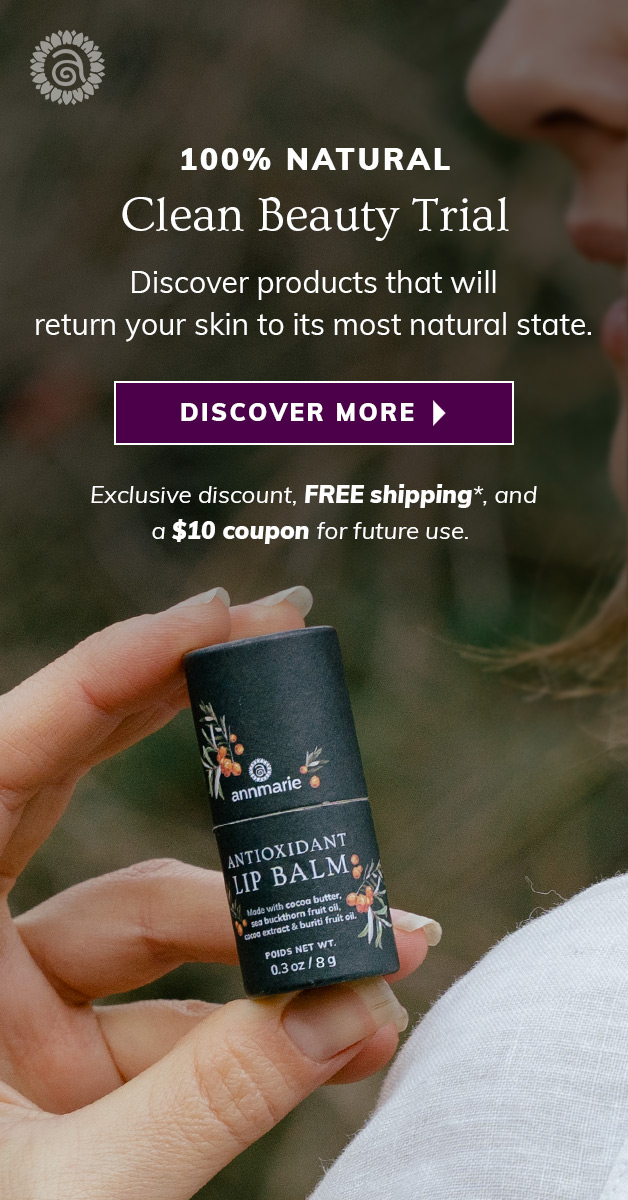Are essential oils safe, whereas synthetic skin care ingredients are not?
Well… it’s complicated. Safety is a very broad and subjective term. As Hippocrates said, with the right cure given at the right time and in the right dose, miracles can happen. Essential oils are very concentrated, they embody the maximum power of a plant, compressed in a minimum amount of oil. This makes them a powerful ally, which needs to be handled with care. Strong and active ingredients do not just come out of a chemical lab or a strip of pills, they can also be found in nature and essential oils are the most flagrant proof of that.
Organic essential oils are natural and free of pesticides, however, you can allways have an allergic reaction to them, just as with… pretty much everything else! Everybody is unique and can have a certain rensponse to a substance, even the most natural one. Think of it as a possible allergic reaction to strawberries or pollen. Perfectly natural and very healthy… except for certain people.
So, apart from the ones you’re allergic to, I believe natural and organic essential oils are much better than synthetic substances. There are countless examples of people suffering from dermatitis or eczema, who have found relief only after steering away from synthetics. Ultimately, even when synthetic components are used without causing any imminent issues, many of them (if not all) have been related to health problems in the long run.
Should essential oils ever be applied to the skin undiluted?
No, essential oils are very concentrated and you should not apply them to the skin undiluted. I would like to nuance that a bit though. To stay on the safe side, a good guideline is to always dilute essential oils to 2-3% for skin care and never swallow any. That said, under the supervision of a certified aromatherapist, essential oils can sometimes even be prescibed orally.
If you’re interested in the use of essential oils for skin care, I suggest you educate yourself by researching their properties and reading up on the subject. That should give you more insight in which oils can and can’t be used undiluted and why.
For example, I would never use pure cinnamon or clove essential oil on the skin, but have been successfully using a very small dab of undiluted tea tree or myrrh essential oil to treat spots and desinfect small wounds.
Have essential oils been tested for safety by the FDA?
Good question. The FDA has tested many products and ingredients. So much of these substances are now labeled ‘safe’, even when scientific research has proven the contrary to be true! (Did you know the artificial sweetener aspartame, widely used in “light”-food and drinks, is a toxin and carcinogen? Yet, the FDA has labeled it ‘safe’. Read more here.)
There are dermatologists who reject the use of essential oils for skin care, with the sole argument that ‘their safety hasn’t been scientifically tested’. In their opinion a substance is per definition unsafe, until experiments have proven the contrary. But does everything have to be tested for safety? When we’re dealing with plants and vegetable extracts that have been safely and successfully used for thousands of years, are we suddenly going to decide they might be unsafe, since they haven’t been simmering in a test tube long enough? To be consequent in that logic, should we now refrain from eating potatoes, until they have been extensively tested?
Money can make lines a little blurry. Testing costs a lot of money and plants can’t be patented. Which pharmaceutical or cosmetics company is willing to make such an investment in a substance that in the end doesn’t offer the perspective of big profits? Indeed, the answer lies within the question, doesn’t it?
*Image credit: freedigitalphotos.net
All statements on this website express a personal opinion. I have no background in science or medicine. None of my musings can or should replace consulting your health care professional.




